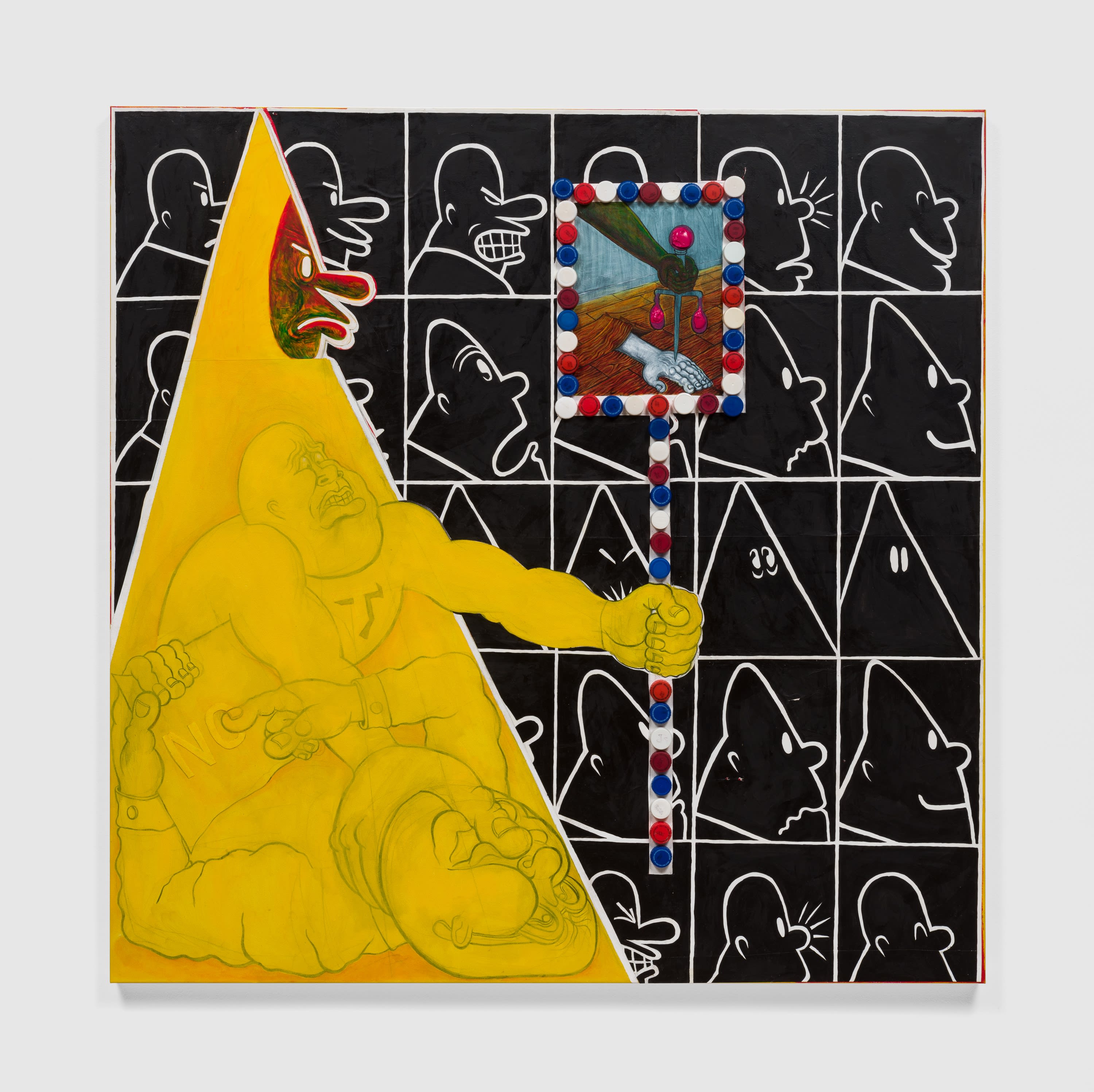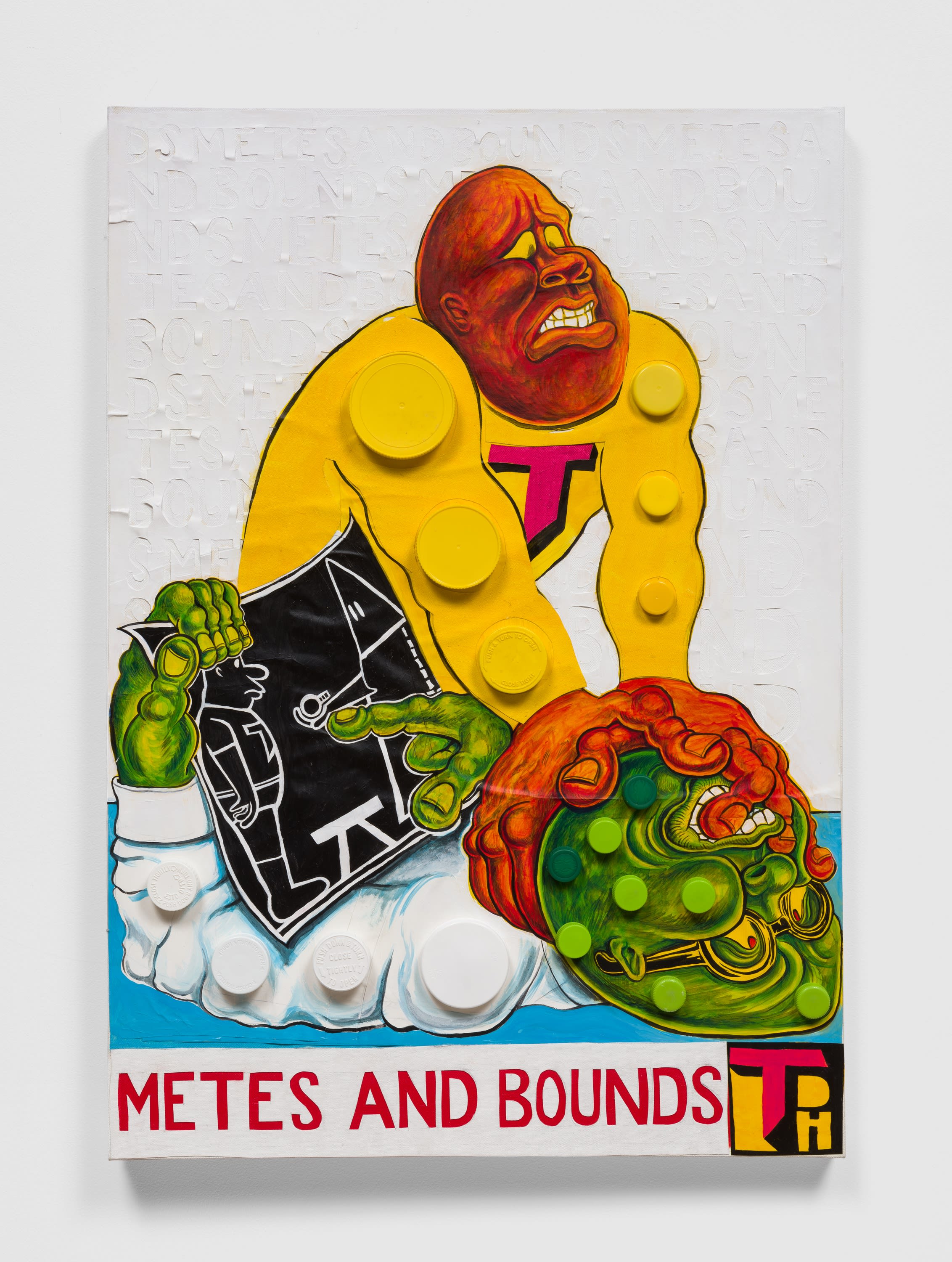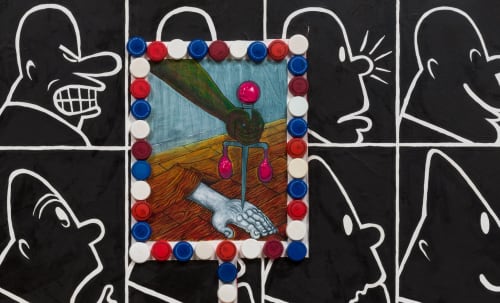
Like his multifaceted painting, drawing and storytelling universe, Trenton Doyle Hancock is many things—but he’s no vegan. The autobiographical, fantastical, art historical, comic-book world of his invention — the Moundverse — is inhabited by a variety of characters from the ambiguously heroic to the problematic, paradoxical and outright villainous. Among his eponymous artist alter-ego Hancock, (the mostly good Torpedo Boy who is also individuated from him), are unsavory coppers, Guston-derived klansmen, and other shapeshifting, above-and below-ground dwellers; however, it’s still the elitist, tofu-bogarting Vegans that are the biggest problem. Obviously.
Across vibrantly textured, colorful, surreally distorted paintings, and elaborate, finely detailed and vertiginously vast drawing and collage scenes, to storyboard-style pages from his Moundverse illustrated novel, Hancock is equally dexterous in labor-intensive long-term visions and gestural emotion and momentum. He is concerned with excavating his own life and consciousness, as well as the exegesis of his aesthetic and cultural influences and the excoriation of America’s litany of disgusting failures regarding equality, race, class and justice—but Hancock’s gift is not only for invention, but for synthesis. In any given work, his concerns and inflections and even realms of reality interplay and overlap, as in Step and Screw, in which the character of Torpedo Boy crosses timelines to meet a member of Guston’s KKK.

Trenton Doyle Hancock, Let’s Try the Yellow Triangle Angle or The Return of Piss Christ, 2022. Courtesy of the artist and Shulamit Nazarian, Los Angeles. Photo: Ed Mumford.
In assertive compositions like Let’s Try the Yellow Triangle Angle or The Return of Piss Christ (2022) and Metes and Bounds (2022) the brightness of primary yellow and the chalkboard-like black-and-white schematics distort nesting picture planes and the anatomy of muscular figures, but their metaphysical meanings are clear. Throughout the exhibition, examples like these of Torpedo Boy (who, remember, is one of the artist’s own alter egos) gradually morphing into a klansman recur, reinforcing the idea that personal and creative evolution is not linear, and that good and evil are more fungible and coexistent than we admit. Except in the Vegan city of Gumit, where everything is straightforwardly labyrinthian and terrible. Damn Vegans.
The Skint Alterpiece: Vegans Make Deposits at the Tofu Bank is a Boschian riddle of greed and gluttony built of thousands of fine tiny drawings, meticulously made and/or repurposed from Hancock’s archives over the course of almost a year. Its wit and humor, unfathomably finessed flourishes of hand-drawn detail, visual puns, architectural and civil engineering, and buzzing urban energy is impossible to overstate. Ultimately, Hancock weaponizes humor and beauty against encroaching injustice—and the story he’s been working on for decades has never felt timelier.


